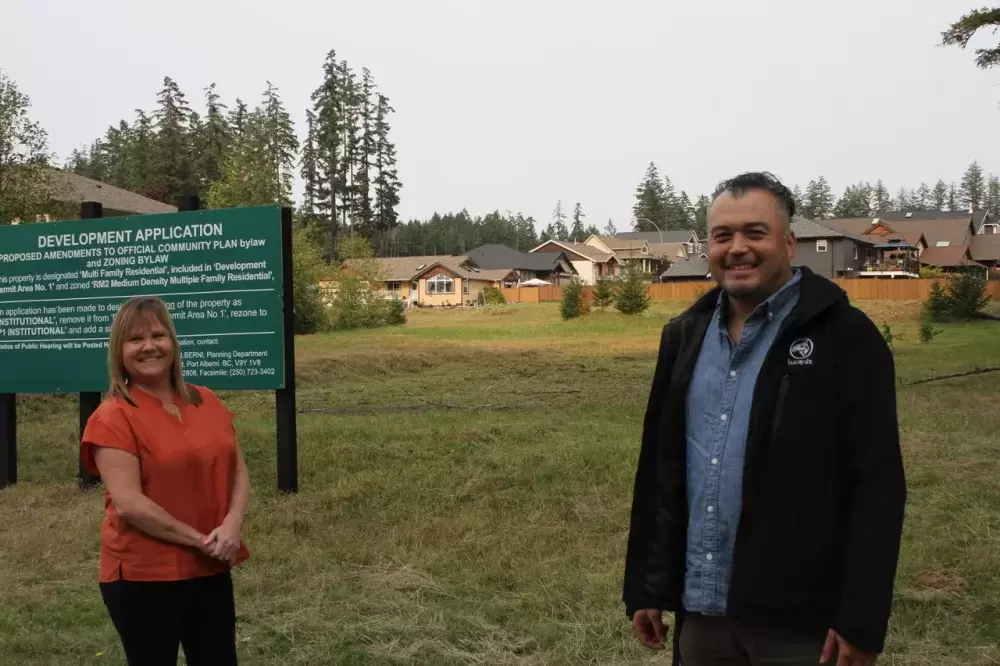Huu-ay-aht First Nations declared a public health emergency in March 2018 as 21 per cent of the nation’s kids were in foster care.
By making a concerted, intense effort to reduce the number of Huu-ay-aht children in care through the nation’s Social Services Project, numbers have since decreased, said Shannon Zimmerman, the nation’s director of child and family wellness.
“In saying that, we still have too many kids in care,” she said.
Continuing in their fight to bring their children home, Huu-ay-aht First Nations and the Port Alberni Mother Centre Society have been working with BC Housing to develop an Aboriginal Mother Centre. Oomiiqsu will provide a space and platform for families to have real-time support, with a focus on cultural programming.
“Removing children from the care of their mothers negatively affects parent-child attachment and adds another layer of trauma to families,” said Zimmerman. “A 24-hour staffed resource where mothers and their children will live and receive individualized, wrap-around and culturally appropriate support, will reduce trauma by decreasing the number of Indigenous children going into care.”
Due to the intergenerational trauma inflicted on Indigenous communities through colonization, residential schools and the Sixties Scoop, the family unit has been devastated, said Zimmerman.
“There’s been a high incidence of substance abuse, domestic violence, mental health issues [and] involvement with the criminal justice system,” she said. “All of these things that stem from that intergenerational trauma have really resulted in there being a disproportionate amount of Indigenous kids in care.”
Across the country, other Indigenous communities are facing a similar trend. Indigenous kids comprise just 7.7 per cent of Canada’s children aged 0 to 14, yet 52 per cent of those in foster homes are First Nations, Métis or Inuit, according to the 2016 census.
Oomiiqsu, which means mother in Nuu-chah-nulth, will offer a 12-unit residential program for mothers and their children, aged 12 and under. By placing a focus on early intervention, the nation is aiming to establish a preventative approach.
Access to cultural support staff and elders will allow families the opportunity to practice their traditions and to learn more about their cultural values in an environment where they are supported, said Zimmerman.
“There’s going to be lots of opportunity for healing, for growth,” said Huu-ay-aht Councillor Edward R. Johnson. “It’s going to eliminate children being taken away – they’ll be able to be in the same facility as the mother does work – as the parent do work. It’s a way of keeping families together.”
Construction has yet to begin, as it is contingent on securing operational and funding approvals, but land has been purchased by BC Housing, said Zimmerman.
“A lot of our culture and language were extracted from our people,” said Johnson. “This is an opportunity to extract those negative teachings and bring our people together and bring our people home.”







